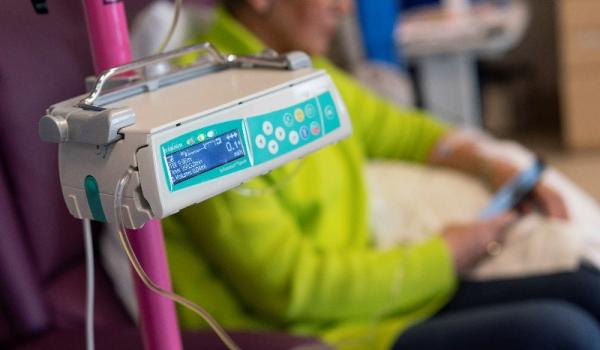Efficacy and Safety of Pembrolizumab (MK-3475) Plus Lenvatinib (E7080/MK-7902) in Previously Treated Participants With Select Solid Tumors
Who can take part
Please note - unless we state otherwise in the summary, you need to talk to your doctor about joining a trial.
You may be able to take part in this trial if:
- you have advanced primary ovarian cancer
- you have received three prior lines of therapy
- your doctor feels that no further standard treatments are suitable for you
- you have good overall levels of activity and wellbeing
About the trial
The purpose of this study is to determine if a combination of two different anti-cancer drugs are safe and effective in treating different types of solid tumours, including ovarian cancer. It's for women with ovarian cancer whose cancer has continued to spread and grow despite standard chemotherapy treatments. The drugs involved in this trial are known as targeted therapies and they work in a different way to chemotherapy.
The drugs involved in this trial are:
- Pembrolizumab – a type of immunotherapy drug. It's designed to stimulate the body's immune system to 'see' and fight the cancer cells.
- Lenvatinib – a type of targeted drug known as a RTK inhibitor. It helps to block certain proteins that allow cancer cells to grow.
If you take part in this study, you'll be randomised (placed into a treatment group by a computer) into one of two treatment groups:
- Pembrolizumab and Lenvatinib – you’ll have pembrolizumab intravenously (given via a drip) once every three weeks and Lenvatinib orally (taken by mouth) once a day.
- Lenvatinib only – you’ll have Lenvatinib orally (taken by mouth) once a day.
Women on the trial who receive pembrolizumab can have this drug for a maximum of two years. Your doctor may stop the drug sooner if you have unacceptable side effects or if the cancer gets worse. You may be able to continue to take lenvatinib after two years. The trial team will be able to answer any questions about this.
If you take part in this study, you'll also need to:
- agree to share your medical history with researchers.
- have additional screening tests to make sure you are able to safely take part in the trial.
- complete quality of life questionnaires during the trial and for a period afterwards.
- have additional blood tests and donate blood samples for research purposes.
- have more imaging scans (CT or MRI) than you would have in routine clinical care.
- donate a sample of your tumour that was previously obtained through a biopsy or surgery. If no sample is available, you'll be asked to have another biopsy to obtain one.



